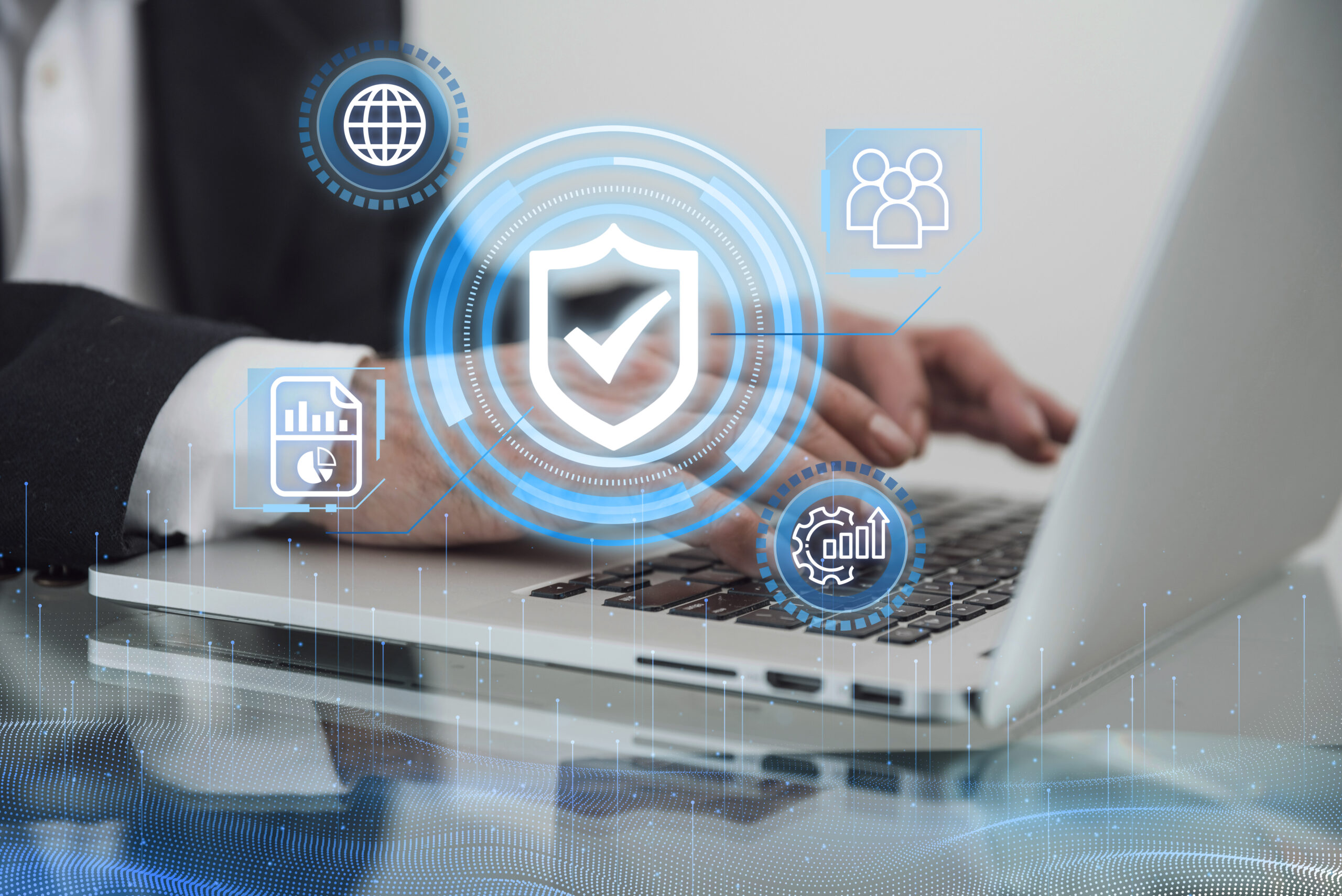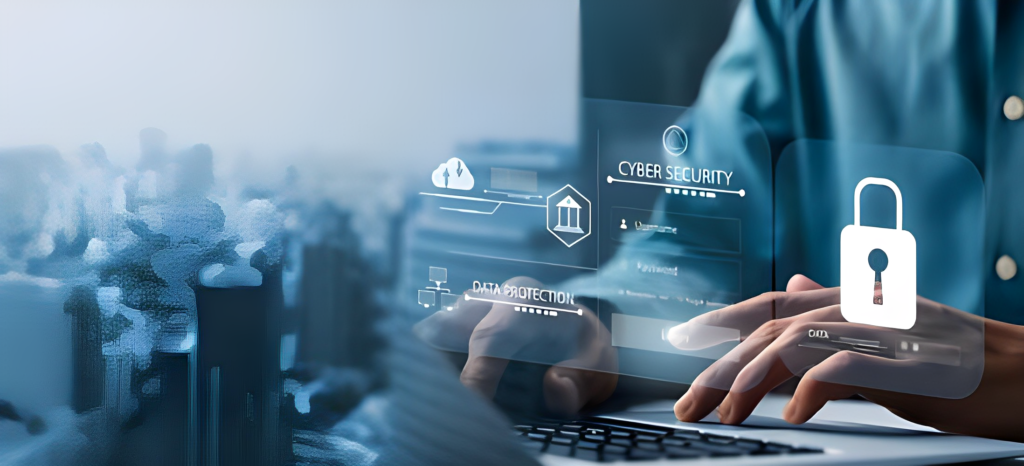Cybersecurity Tips for Small Businesses
Cybersecurity Tips for Small Businesses - A Comprehensive
In the dynamic and digitally driven landscape of contemporary business, the challenge of securing digital assets for small enterprises is more pertinent than ever. Cyber threats, ranging from phishing attacks to sophisticated ransomware, pose a constant menace. Recognizing the critical need for a comprehensive and robust cybersecurity strategy, this guide aims to empower small businesses with detailed insights and strategies to not only enhance their digital security but also outrank competitors in the competitive online space.
Understanding the Foundation: Conduct Regular Security Audits
At the heart of any resilient cybersecurity posture lies the commitment to regular security audits. These audits are not just a routine check but a proactive measure to systematically assess vulnerabilities within your digital infrastructure. By conducting these assessments regularly, small businesses can identify potential weak points, address them promptly, and stay ahead of the ever-evolving threat landscape.
A security audit involves a comprehensive examination of the organization’s digital ecosystem, including networks, systems, and applications. It aims to identify potential vulnerabilities, assess the effectiveness of existing security measures, and provide insights into areas that need improvement.
Small businesses often underestimate the value of these audits, considering them to be relevant only for larger enterprises. However, the truth is that cybercriminals often target smaller entities precisely because they may lack the robust security measures of larger corporations. Regular security audits act as a preemptive strike, ensuring that your business is fortified against potential threats.
Fortify Your Defenses: Implement Strong Password Policies
Passwords are the gateway to digital assets, making it crucial to establish and enforce strong password policies. The days of using simple, easily guessable passwords are long gone. Today, cybercriminals use sophisticated methods to crack passwords, emphasizing the need for complexity and regular updates.
Encourage your employees to create complex passwords, incorporating a mix of uppercase and lowercase letters, numbers, and symbols. This complexity adds an additional layer of protection against brute-force attacks. Moreover, regularly updating passwords is essential, as it mitigates the risk associated with compromised credentials.
Password policies should extend beyond individual accounts to cover any systems or applications that require authentication. This includes securing routers, firewalls, and any other devices connected to your business network. By making strong password practices a standard operating procedure, you create a robust first line of defense against unauthorized access.
Empower Your Team: Cybersecurity Awareness Training
In the ever-changing landscape of cybersecurity threats, an educated workforce is your organization’s first line of defense. Investing in cybersecurity awareness training for your employees is not just a compliance measure; it is an investment in the overall security culture of your business.
Cybersecurity awareness training goes beyond the basics of creating strong passwords. It educates employees on recognizing and thwarting phishing attempts, identifying suspicious emails, and understanding the importance of keeping sensitive information confidential. This training should be an ongoing process, considering the evolving nature of cyber threats.
The human element is often the weakest link in the cybersecurity chain. Employees who are unaware of the latest threats or fail to recognize potential risks can inadvertently become conduits for cyber attacks. Cybersecurity awareness training aims to empower your team to be vigilant, fostering a culture where security is everyone’s responsibility.
Firewall as Your Sentinel: Secure Your Network
Consider a robust firewall as the digital sentinel guarding the gates of your business network. Implementing a firewall is not just a checkbox in your cybersecurity to-do list; it is a proactive measure that regulates and monitors incoming and outgoing network traffic.
Firewalls can be hardware-based, software-based, or a combination of both. They act as a barrier between your internal network and external threats, preventing unauthorized access and potential cyber attacks. A well-configured firewall is essential for small businesses, providing an added layer of security beyond standard endpoint protection.
It’s crucial to choose a firewall solution that aligns with the scale and complexity of your business operations. Additionally, regular updates and monitoring are essential to ensure that the firewall remains effective against emerging threats. Firewalls are not a one-time investment but an ongoing commitment to digital security.
Stay Current: Keep Software and Systems Updated
Outdated software and systems are low-hanging fruit for cybercriminals. Regularly updating your business applications, operating systems, and security software is not just a best practice; it’s a fundamental aspect of maintaining a resilient cybersecurity posture.
Software updates often include critical security patches that address known vulnerabilities. Failure to update exposes your business to exploitation by cyber threats that specifically target outdated systems. Cybercriminals are adept at identifying and exploiting vulnerabilities, making it imperative to stay current with the latest releases and patches.
Small businesses often overlook the importance of software updates, either due to concerns about compatibility issues or a lack of awareness about the potential risks. However, the cost of a security breach far outweighs any inconvenience caused by system updates. Adopting a proactive approach to system maintenance is an investment in the long-term security and stability of your business.
Safeguarding Your Lifeline: Backup Your Data Regularly
Data is the lifeblood of any business, and the loss of critical data can be catastrophic. Adopting a robust data backup strategy is not just a precautionary measure; it is a lifeline that can mitigate the impact of unforeseen events such as ransomware attacks, hardware failures, or accidental deletions.
Regularly backing up your critical business data to secure offsite locations ensures that even in the event of a cyber incident, you can recover essential information. Cloud-based backup solutions provide an additional layer of protection, enabling seamless restoration of data in the aftermath of a security breach.
The frequency of data backups should align with the pace of your business operations and the volume of data generated. Critical data, such as customer information, financial records, and proprietary business data, should be prioritized in the backup process. A well-executed backup strategy is a form of insurance, offering peace of mind and resilience in the face of digital threats.
Precision in Access: Restrict Based on Roles
Granting access to sensitive data on a need-to-know basis is a fundamental principle of cybersecurity. Implementing a role-based access control system ensures that employees have access only to the information necessary for their specific job functions. This approach not only enhances security but also streamlines operations, preventing unauthorized access to critical data.
Role-based access control involves defining roles within the organization and assigning permissions based on job responsibilities. For example, employees in the finance department may have access to financial records, while those in marketing may have access to customer data. This granular approach minimizes the risk of unauthorized access, even in the event of a security breach.
Regularly reviewing and updating access permissions is crucial, especially in a dynamic business environment where roles may evolve. Employee onboarding and offboarding processes should include a thorough review and adjustment of access rights to ensure that former employees no longer have access to sensitive data.
Vigilance in Action: Monitor and Respond to Suspicious Activities
Real-time monitoring is the heartbeat of an effective cybersecurity strategy. Implementing intrusion detection systems (IDS) and security information and event management (SIEM) tools enables your organization to detect and respond promptly to potential security incidents.
Intrusion detection systems actively monitor network and system activities, flagging any behavior that deviates from established norms. SIEM tools aggregate and analyze security event data from various sources, providing a holistic view of your organization’s security posture. Together, these tools create a proactive defense mechanism, allowing your business to respond swiftly to potential threats.
Swift responses are critical in the face of cyber threats. The longer a security incident goes unnoticed, the greater the potential impact. Monitoring should not be limited to external threats but should also include internal activities to detect any anomalies or suspicious behavior among employees.
Seek Expert Guidance: Collaborate with Cybersecurity Professionals
Navigating the complex landscape of cybersecurity requires expertise that extends beyond the capabilities of most small businesses. Collaborating with cybersecurity professionals is not an admission of weakness; it is a strategic decision to bolster your defenses with specialized knowledge and experience.
Cybersecurity professionals can conduct thorough risk assessments, identifying potential vulnerabilities specific to your business. They can recommend tailored security solutions that align with your unique needs and budget constraints. In the event of a security incident, their expertise becomes invaluable, guiding your organization through the response and recovery process.
The role of cybersecurity professionals goes beyond mere technical support. They can also provide ongoing guidance on emerging threats, regulatory compliance, and best practices. As the threat landscape evolves, having a trusted cybersecurity partner ensures that your business remains agile and resilient in the face of new challenges.
Conclusion: A Holistic Approach to Cybersecurity
In conclusion, cybersecurity for small businesses is not a one-size-fits-all endeavor; it’s a dynamic and ongoing process that demands attention to detail and a commitment to best practices. By incorporating these comprehensive cybersecurity tips into your business practices, you are not merely checking boxes; you are actively shaping a robust defense against potential threats.
In the ever-evolving digital age, the safeguarding of your digital assets is not just a matter of compliance; it is synonymous with safeguarding the future of your business. The investment in cybersecurity is an investment in the trust of your customers, the stability of your operations, and the overall resilience of your organization.
As you embark on the journey to enhance your cybersecurity posture, remember that staying informed and proactive is key. Cyber threats will continue to evolve, but with a holistic approach to cybersecurity, your small business can navigate these challenges and emerge stronger, more secure, and better positioned in the digital landscape.

RABBIT R1: Transforming Everyday with AI
RABBIT R1: Transforming Everyday Life with AI Introduction to RABBIT R1 RABBIT R1 is a pocket-sized AI device that can do everything for you without using apps or screens. You can talk to it, and it will use LAM, an AI model, to complete tasks for you, such as booking

TP-LINK DECO X-50 POE || AX3000 || WIFI
TP-LINK DECO X-50 PoE || AX3000 Image Source: TP-LINK Introduction TP-LINK DECO X-50 POE is a home mesh WiFi 6 system with PoE that offers reliable, fast, and flexible WiFi for your home or business. It uses the latest WiFi 6 technology and PoE power supply to deliver seamless WiFi

Blockchain Benefits: Secure, Transparent
Blockchain Benefits: Secure, Transparent, Efficient Introduction to Blockchain Technology Blockchain technology has emerged as a revolutionary force, disrupting traditional systems and offering innovative solutions. In exploring “The Advantages of Blockchain Technology,” we will uncover this decentralized marvel’s transformative power and potential. What is Blockchain? Blockchain is a decentralized ledger system
Author









